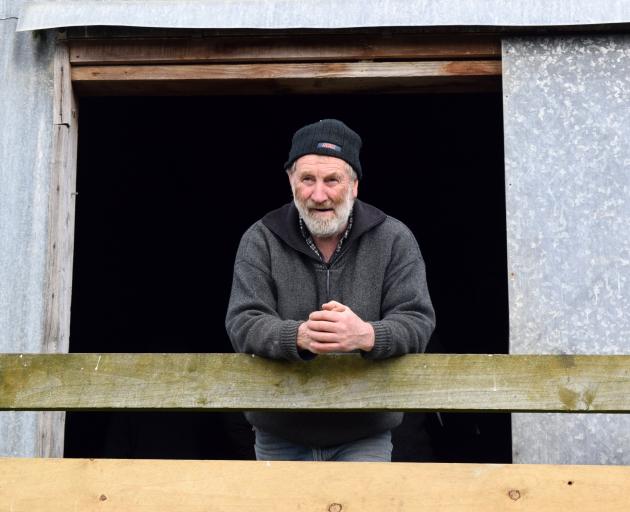Science
New Zealand Study Tracks Facial Eczema in Sheep Farms

A study by Beef + Lamb New Zealand is delving into the impact of facial eczema on sheep farms throughout the country. This research, which focuses on fresh sheep manure, aims to provide farmers with a clearer understanding of the disease’s prevalence and effects. Dr. Cara Brosnahan, an animal health research principal scientist based in Wellington, noted that the study has recently entered its third and final season.
In the second season of the study, low levels of facial eczema spores were detected on four farms in Otago, while one farm in Southland showed spore presence during the first season. The spores, produced by a toxic fungus, can be ingested by grazing livestock, leading to significant health issues when they consume contaminated pasture, primarily ryegrass. Farmers were promptly notified when spores were found in their manure samples and encouraged to submit further samples to monitor spore levels.
If spore counts increased, farmers were advised to consult a veterinarian. Dr. Brosnahan explained that livestock might not exhibit clinical symptoms after ingesting a low quantity of spores. However, hidden signs of infection could manifest as decreased productivity or higher empty rates during pregnancy scanning. Clinical evidence of the disease has been reported across regions from Northland to the West Coast. Alarmingly, over half of the manure samples submitted by farmers in the northern half of the South Island showed signs of the disease.
The ongoing research aims to confirm how factors such as farm elevation, pasture height, and nearby spore counts might influence the risk of facial eczema. Participation in the study is straightforward and free, according to Dr. Brosnahan. Farmers collect manure samples biweekly from October to May. Beef + Lamb supplies the necessary kits and covers postage costs. In return for their participation, farmers receive results that inform them about their facial eczema risk, a subsidy of $40 for fecal egg counts, and an opportunity to be one of 25 farms selected for monthly testing.
Dr. Brosnahan emphasized the importance of the final season, highlighting the need for increased participation, particularly from farmers who have not previously detected facial eczema on their farms. “Those results help build our understanding of this devastating disease,” she stated. When livestock consume sufficient spores, they risk liver damage, which can lead to reduced fertility, weight loss, decreased milk production, photosensitivity, sunburn, and, in severe cases, death. “There’s no cure, so proactive management is essential,” she added.
Graham Evans, a sheep farmer from the Catlins region, echoed the need for heightened awareness and participation among southern farmers. He has been collecting and sending manure samples from his property, Barr Falls Farm, since the study commenced. Although no facial eczema spores have been found on his farm, Evans believes the disease’s spread to the South is inevitable. “It doesn’t matter whether you believe in climate change or not. It’s going to happen,” he remarked.
Evans participates in the study to contribute to the future of farming in the region. He urged more southern sheep farmers to engage in the research, noting that conditions vary significantly between different farming environments, including the Catlins, Central Otago, Eastern Southland, and Western Southland. By participating, farmers not only protect their own flocks but also contribute to a national strategy addressing a disease that costs the sector more than $330 million each year.
-

 World1 week ago
World1 week agoPrivate Funeral Held for Dean Field and His Three Children
-

 Top Stories2 weeks ago
Top Stories2 weeks agoFuneral Planned for Field Siblings After Tragic House Fire
-

 Sports3 months ago
Sports3 months agoNetball New Zealand Stands Down Dame Noeline Taurua for Series
-

 Entertainment3 months ago
Entertainment3 months agoTributes Pour In for Lachlan Rofe, Reality Star, Dead at 47
-

 Entertainment2 months ago
Entertainment2 months agoNew ‘Maverick’ Chaser Joins Beat the Chasers Season Finale
-

 Sports3 months ago
Sports3 months agoSilver Ferns Legend Laura Langman Criticizes Team’s Attitude
-

 Sports1 month ago
Sports1 month agoEli Katoa Rushed to Hospital After Sideline Incident During Match
-

 World2 weeks ago
World2 weeks agoInvestigation Underway in Tragic Sanson House Fire Involving Family
-

 Politics2 months ago
Politics2 months agoNetball NZ Calls for Respect Amid Dame Taurua’s Standoff
-

 Top Stories2 weeks ago
Top Stories2 weeks agoShock and Grief Follow Tragic Family Deaths in New Zealand
-

 Entertainment3 months ago
Entertainment3 months agoKhloe Kardashian Embraces Innovative Stem Cell Therapy in Mexico
-

 World4 months ago
World4 months agoPolice Arrest Multiple Individuals During Funeral for Zain Taikato-Fox





















